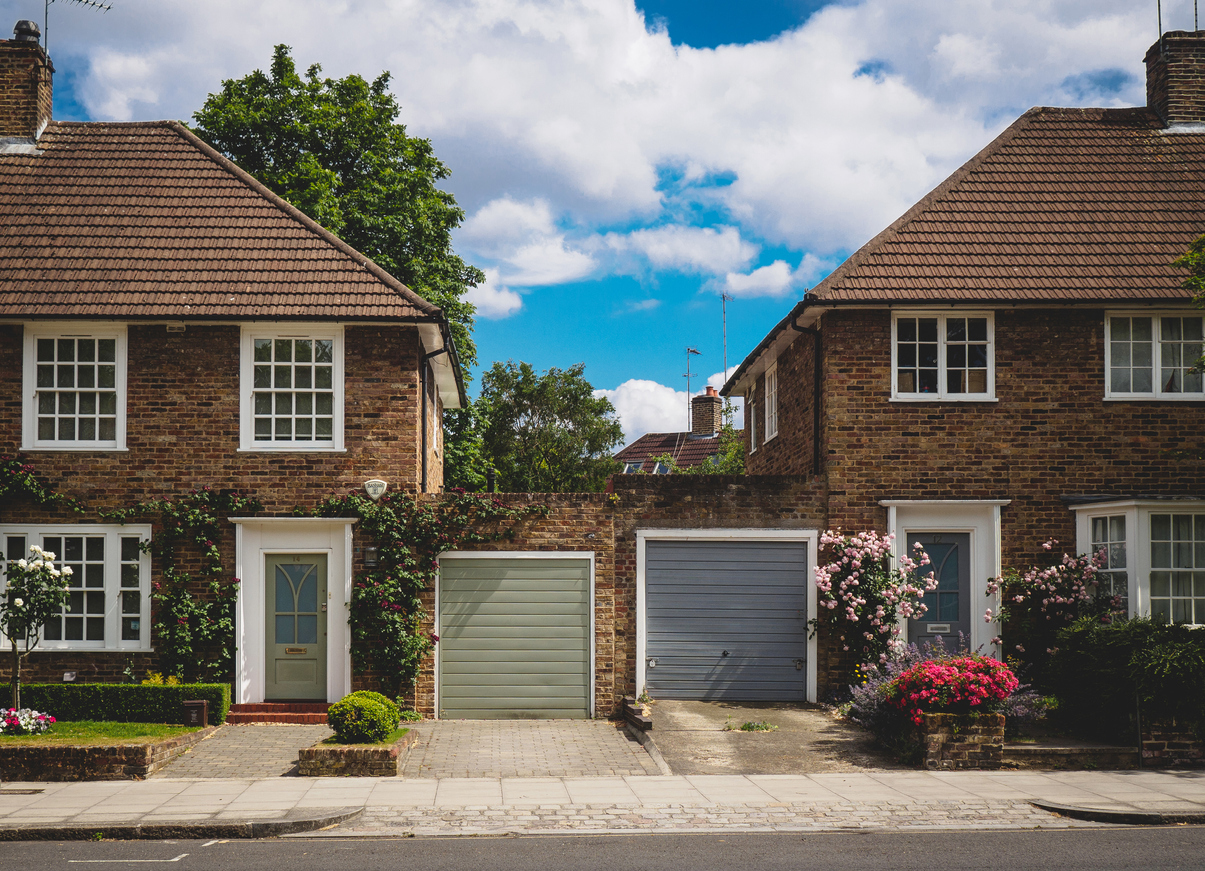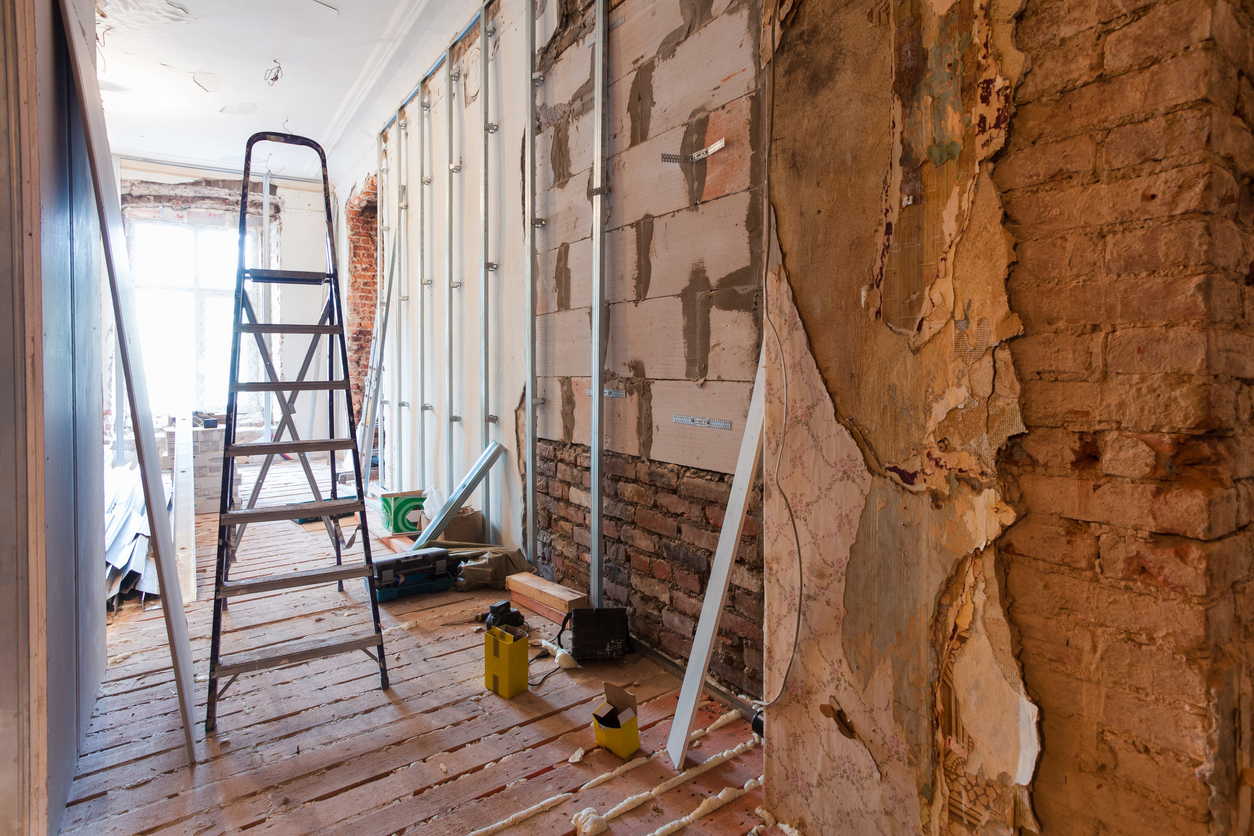With what feels like a plethora of new homes being built in towns and villages all over the UK, it's clear that the market for new properties is booming, but if it's something with a bit more personality and character you're looking for or you can't afford something shiny and new, could choosing a less than perfect older property, often known as a fixer-upper, be a good idea?

1. Running costs can be high and energy efficiency can be low in older properties
Love them or loathe them, one of the big benefits of new builds is that they are generally more energy-efficient. From high-levels of insulation, double glazing and high energy efficiency ratings, new-builds can often be a good choice when you are keen to keep your energy costs and carbon impact low.
That said, with a little work and investment, even the oldest of properties can be made far more energy-efficient. Before you consider buying an older property that needs work, pay careful attention to the EPC (energy performance certificate) in the home seller's pack.
This will provide you with vital information including estimated heating, lighting and water costs. Properties receive an energy rating, along with recommendations for improving the rating so this is something to pay careful attention to before buying and older property.
2. Work may take longer and cost more than you expected
If you're looking at buying something that clearly needs a lot of work to modernise, and you need to move in right away, then make sure you factor in the reality of living in a home that may effectively become a building site for several months.
For some busy families, accommodating extensive building work can cause severe disruption to family life and it can also eat away at your budget - and sanity!
Whatever your budget for renovating the property is, ensure you add at least a 30% contingency on. You could find that after initial work starts that something fairly straight forwards becomes more problematic, making it more time consuming to put right and demanding more money than you might initially have budgeted for.
This disruption caused by extensive building works should not be underestimated, it can put a serious strain on the family and can prove quite stressful for a prolonged period of time, so make sure you are up for the challenge!
3. Working room by room instead of doing everything in one go could be an option
If you don't have a large budget available, you could consider doing things little by little rather than having a lot of work done all at the same time.
The benefit of doing it this way is that it results in less disruption, but the downside is that it could take months or even years to complete everything on the to-do list, as you are endlessly saving and ploughing money back into the house.

4. You could end up taking on more than you can manage
A bargain property might have potential, but realistically, how much time and money is it really going to take to transform a tired old property?
Make sure you get a detailed inspection report followed by a range of quotes from qualified tradesmen and understand from the outset that the timescale estimates they provide can often be hugely optimistic (unrealistic!) and will often slip, taking far longer than anticipated.
5. Renovating an older property can add greatly to its value
A modern shiny new kitchen and bathroom can add thousands on to the value of a property but before you do too much, make sure you take into account the ceiling price for the area.
You don't want to end up spending more on doing the property up than you can eventually recoup when it comes to the time to sell up!
6. You could save money by doing some work yourselves
By sourcing materials more cheaply to enlisting the skills of friends or family members, you could bring a renovation project in more cheaply. Remember, however, this takes time. From finding the perfect tiles to stripping walls, doing it yourself can be tempting, but you want to ensure you don't end up with a second-rate finish or worse, something structurally unsound.
Calling in the professionals for some aspects of work is a must, particularly when it comes to jobs like plumbing and wiring which require safety certificates and real skill to complete.
However, by calling in qualified professionals where needed but by finishing the property yourself, for example decorating, laying flooring and doing the tiling yourself, you could save yourself hundreds of pounds.
7. Taking on a big job can be stressful and exhausting
Depending on how big a renovation job you're taking on, you need to be prepared for the physical and emotional toll it can have. You'll no doubt need to make lots of decisions and if you are project managing everything yourself, it can feel like a full-time job in itself.
If you already have a very demanding job and a family to take care of, then this needs to be high up on your list of considerations and may require you to dig a little deeper into your pocket to pay someone to project manage and make key decisions for you.
8. You may be restricted to what you can and can't do to the property
Even if your property isn't listed, the local council may have restrictions in place or you may need to submit planning applications if you are considering extending the property or making any other significant changes.
Make sure you do your homework before you buy and find out whether the property has listed status, and whether the changes you're hoping to make are realistic and likely to be approved if a planning application is needed.

9. You could end up with the property of your dreams and for less!
One of the biggest benefits of buying a property that needs work is that you get the chance to turn it into a home that will work for you and your family.
From deciding on where to locate power sockets to the general size and layout or rooms and amenities, if you're planning an extensive renovation, you essentially get to benefit from an almost blank canvas which means you can make decisions that fit your exact requirements and suit both your lifestyle and taste.
10. It's a cheaper way to get on to or move up the property ladder
Buying a shiny new home will typically mean you are paying a premium, so going for an older property that needs some work means the purchase price is likely to be far cheaper than the asking price for an already updated or new-build property.
This can make homes requiring a little work to bring up to date a great option for cash strapped first-time buyers or those wanting to move up the property ladder into a bigger home or a better area.
We can help you move home faster
Are you looking to move home and wondering how much you could borrow? Take a look at our handy mortgage calculator to find out or get an instant online home valuation here.

